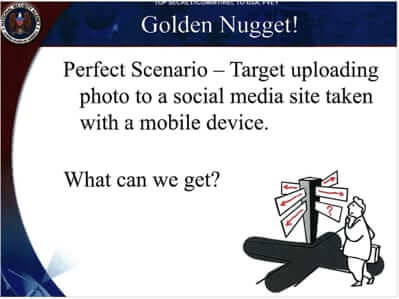
Turns out there is another reason for rejecting all those insidious game invitations from smartphone apps and their Facebook counterparts: the New York Times has revealed today that the NSA and its British counterpart, GCHQ, are mining the data that your smartphone apps are generating, from location data, to contact lists, to phone logs and even the data embedded in images. Dubbed the “Mobile Surge” by the Brits, the intelligence community is giddy with glee over the trove of data served up by mobile apps.
According to the report, the spook agencies have a particular interest in Google Map data, which is known to be accurate down to a very fine degree. But it seems that they look at anything and everything they can get their hands on, including, even, data from such games as Angry Birds.
What can a spy agency glean from your Angry Birds play? Plenty, according to documents, including your location, sex, and age, among other personal information.
To be sure, not all apps will share this information, but many are what are known as “leaky apps”, and they allow a lot of data to leak onto observable networks – data that you would (want to) assume was private, and certainly that is personal.
The Internet Patrol is completely free, and reader-supported. Your tips via CashApp, Venmo, or Paypal are appreciated! Receipts will come from ISIPP.
While the leaky apps leaking this data are by no means limited to these apps, by far some of the most widely used of such apps identified include the mobile versions of Facebook, LinkedIn, Twitter, and Flickr.
In addition, according to the leaked documents (courtesy of Edward Snowden), even such aspects of a person’s personal life such as sexual orientation and “political alignment” can be gleaned from the data.
Holy McCarthy, Batman!
Earlier this month, President Obama vowed to rein in the NSA’s metadata collection program, but that speech did not mention anything about leaky apps.
Said the NSA, in a statement published earlier today, in response to the allegations, “N.S.A. does not profile everyday Americans as it carries out its foreign intelligence mission. Because some data of U.S. persons may at times be incidentally collected in N.S.A.’s lawful foreign intelligence mission, privacy protections for U.S. persons exist across the entire process.”
The agency added that similar protections are in place for “innocent foreign citizens.”
The Internet Patrol is completely free, and reader-supported. Your tips via CashApp, Venmo, or Paypal are appreciated! Receipts will come from ISIPP.










I knew there was a reason I prefer my old, basic call/text phone!